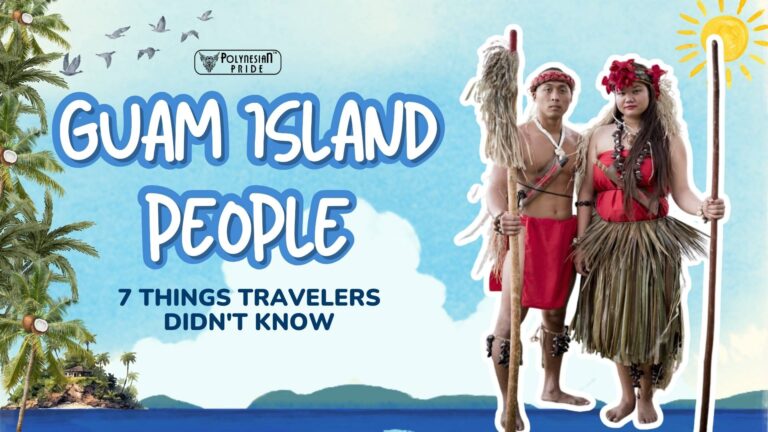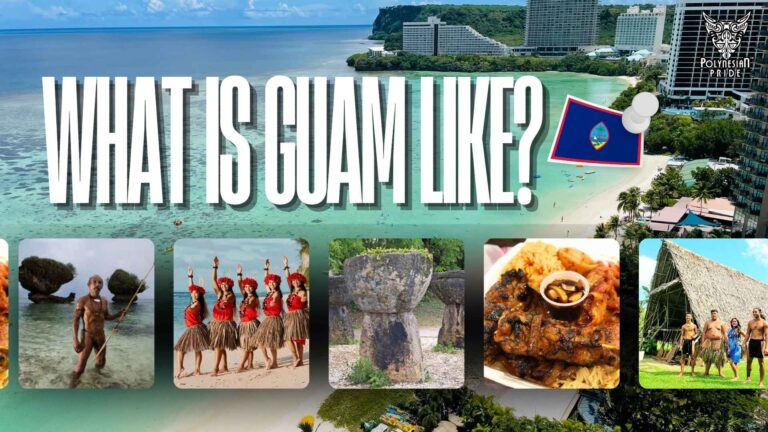What is The Difference Between Samoa and American Samoa

Introduction
Understanding the difference between Samoa and American Samoa can be fascinating, especially considering their proximity yet distinct identities.
While both share the Samoan heritage, they diverge significantly in their political status, culture, and everyday life. Let’s delve into these differences and uncover what sets them apart.
I. Geographical Difference Between Samoa and American Samoa
Samoa
Samoa is an independent nation located in the central South Pacific Ocean. It consists of two main islands, Upolu and Savai’i, and several smaller islands.
Upolu is home to the capital city, Apia. The islands are characterized by lush rainforests, volcanic mountains, and beautiful beaches, making Samoa a picturesque destination.

American Samoa
American Samoa is a territory located southeast of Samoa in the U.S. It comprises five main islands and two coral atolls, with Tutuila being the most significant island where the capital, Pago Pago, is located. American Samoa’s geography is similar to that of Samoa, featuring rugged terrain, tropical forests, and stunning coastlines.

II. Political Status
Samoa
The difference between Samoa vs American Samoa is evident in their political statuses. Samoa is a sovereign state, having achieved independence from New Zealand on January 1, 1962. Governed by a parliamentary democracy, Samoa operates under a mixed legal system comprising English common law and customary law.
The Head of State is elected by the Legislative Assembly for a five-year term, underscoring the stability of its political framework.
American Samoa
American Samoa is an unincorporated territory of the United States, distinguishing it from Samoa. This difference between Samoa and American Samoa means that while it enjoys self-governance under the U.S. flag, it does not possess the full rights of a U.S. state.
The territory’s government is structured with an executive branch led by a governor, a legislative branch, and a judiciary that integrates both American and Samoan legal traditions. Notably, residents of American Samoa are considered U.S. nationals rather than citizens, a distinction that influences their rights and privileges within the territory.
III. Historical Background
Samoa
The fundamental difference between Samoa and American Samoa lies in their historical backgrounds.

Before European colonization, Samoa had a history of independent village-states and a complex social structure. In the late 19th century, colonial powers targeted Samoa, leading to the Tripartite Convention of 1899, dividing the islands. Germany and later New Zealand governed Western Samoa (now Samoa) until it gained independence in 1962.
American Samoa

Before European contact, American Samoa’s history was part of a shared Samoan cultural and political sphere.
With the Tripartite Convention of 1899, the Samoan Islands were divided: the eastern group became American Samoa, administered by the U.S., while the western islands became German (now Independent Samoa).
Starting in about 1900, the U.S. Navy governed American Samoa, prioritizing its strategic harbor at Pago Pago. On July 1, 1951, governance was transferred to the Department of the Interior, initiating civilian rule.
American Samoa’s location has made it a key pillar of U.S. military and regional strategy in the Pacific.
IV. The Difference Between Samoa and American Samoa In Culture
A. Language
Samoa
In Samoa, the official languages are Samoan and English. People speak Samoan daily, while government and business settings use English. The language reflects the nation’s cultural heritage and is integral to its identity.
American Samoa
American Samoa also recognizes Samoan and English as official languages. However, due to the territory’s connection to the United States, English tends to have a more prominent role in education and administration. Nonetheless, Samoan remains a critical part of cultural expression.
B. Traditions and Customs
Samoa
The difference between Samoa and American Samoa is apparent in their cultures. Samoan culture is known for its rich traditions like the ava ceremony and traditional tattooing (tatau), all central to the Fa’a Samoa, or Samoan way of life. Cultural events such as the Teuila Festival celebrate these customs through dance, music, and crafts.
American Samoa
Culture in American Samoa shares some cultural practices with Samoa but also incorporates American influences. While the Fa’a Samoa remains strong, American holidays and customs are observed, creating a unique blend of traditions in the territory.

V. Economic Differences
Samoa
Samoa’s economy thrives primarily on agriculture, fishing, and tourism. The production of essential agricultural commodities like coconut, cocoa, and taro significantly contributes to its economic landscape. Moreover, tourism is pivotal in driving the economy forward, as visitors are captivated by the islands’ natural splendor and rich cultural heritage.
American Samoa
On the other hand, the economic difference between Samoa and American Samoa is evident. American Samoa has a more diversified economy but depends heavily on the U.S. government and the tuna canning industry. Government jobs are prevalent, and federal aid supports financial stability. Despite diversification, tuna canning remains vital, employing many and contributing to exports. However, global competition poses challenges to this industry.

VI. Tourism
Samoa
Tourism is vital to Samoa’s economy, with attractions such as the To Sua Ocean Trench, Lalomanu Beach, and the Alofaaga Blowholes drawing international visitors. There are a lot of things to do in Samoa it’s natural beauty, cultural festivals, and welcoming people make it a popular destination.

American Samoa
Tourism in American Samoa is less developed than in Samoa. Still, it offers unique attractions like the National Park of American Samoa, which encompasses stunning landscapes and marine environments. Wondering what things to do in American Samoa? Visitors can experience authentic Samoan culture with a touch of American influence.

VII. Education Systems
Samoa
The educational difference between Samoa and American Samoa is notable. Samoa’s education system is in development, with compulsory primary education. Schools blend Samoan and international curricula, with ongoing efforts to enhance infrastructure and accessibility. The National University of Samoa serves as the primary institution for higher education.
American Samoa
In contrast, American Samoa’s education system closely mirrors the U.S. model. It encompasses both public and private schools offering primary and secondary education. The American Samoa Community College caters to higher education and vocational training needs. Notably, education in American Samoa benefits from substantial U.S. federal funding and resources.

VIII. Healthcare Systems
Samoa
Samoa’s healthcare system faces challenges, including limited resources and access to advanced medical care. Healthcare services are provided by the government and private sector, with efforts underway to improve facilities and training for healthcare professionals.
American Samoa
Healthcare in American Samoa is more advanced due to its association with the United States. The LBJ Tropical Medical Center is the primary healthcare provider, offering various services. Residents also have access to U.S. healthcare programs, enhancing the overall quality of care.
IX. Transportation
Samoa
The difference between Samoa and American Samoa extends to their transportation systems. In Samoa, transportation primarily revolves around buses, taxis, and ferries between the islands. However, the road network is relatively limited, prompting most travelers to rely on road or sea transport for commuting. To facilitate international travel, Samoa boasts Faleolo International Airport, a crucial hub connecting the country to various destinations worldwide.
American Samoa
In distinction, American Samoa provides a diversified transportation network. ‘Aiga’ buses, taxis, and private vehicles are available for travel. The road infrastructure, supported by the U.S., is more developed. Pago Pago International Airport enhances connectivity, serving as a gateway to other Pacific islands and the U.S.

X. Environmental Concerns
Samoa
The environmental difference between Samoa and American Samoa is evident. Samoa faces challenges like deforestation, soil erosion, and climate change impacts such as rising sea levels and increased storms. Conservation efforts aim to protect the environment and promote sustainability.
American Samoa
Similarly, American Samoa deals with coastal erosion, coral reef degradation, and climate change impacts. The territory benefits from U.S. support for environmental protection. It has established protected areas to conserve natural resources.

XI. Legal System
Samoa
Another difference between Samoa and American Samoa is reflected in their legal systems. The legal framework in Samoa comprises a blend of English common law and customary law, which is Fa’a Samoa. The judiciary operates independently, featuring a court system encompassing the Supreme Court, District Court, and Titles Court. Of particular significance is the Land and Titles Court, which specializes in resolving matters about traditional land ownership and chiefly titles.
American Samoa
In disparity, American Samoa’s legal system integrates elements of both U.S. law and Samoan customary law. The judicial system comprises the High Court of American Samoa and district and village courts. Legal proceedings in American Samoa often incorporate traditional dispute resolution methods alongside formal legal procedures, highlighting the territory’s unique blend of legal traditions.
XII. Sports and Recreation
Samoa
Sports are integral to Samoan culture, highlighting a key difference between Samoa and American Samoa. Rugby reigns supreme, producing top international players. Other popular sports include cricket, netball, and traditional games like kirikiti.
American Samoa
In contrast, American Samoa is passionate about American football and rugby, shaping its sports scene. The territory has produced NFL players and enjoys baseball, soccer, and traditional Samoan games.

XIII. Living Standards
Samoa
When considering the difference between Samoa and American Samoa, one aspect to examine is their respective living standards. In Samoa, there is variability in the quality of life, with urban areas generally enjoying superior access to services compared to rural regions. Despite facing economic challenges, Samoa maintains a strong sense of community, with traditional values playing a pivotal role in fostering social cohesion.
American Samoa
American Samoa enjoys a higher standard of living due to its association with the United States, offering better healthcare, education, and infrastructure than Samoa. However, living costs are high, and economic opportunities may be limited, emphasizing another difference between Samoa and American Samoa.
Conclusion
In summary, the disparity between Samoa and American Samoa is multifaceted, encompassing political, economic, and cultural dimensions. While Samoa is an independent nation with a developing economy and rich cultural heritage, American Samoa maintains ties with the United States while navigating its unique identity. Recognizing and celebrating these differences enriches our understanding of the diverse tapestry of the Samoan Islands.
FAQs
What are the main languages spoken in Samoa and American Samoa?
The difference between Samoa and American Samoa is evident in their official languages. Both countries recognize Samoan and English. However, English is more prominent in American Samoa due to its status as a U.S. territory.
How do the economies of Samoa and American Samoa differ?
The difference between Samoa and American Samoa is apparent in their economies. American Samoa is more diversified, leaning on the U.S. government and tuna canning industry. It receives substantial federal aid and offers many government jobs.
What is the key cultural difference between Samoa and American Samoa?
Samoa and American Samoa share the Fa’a Samoa cultural heritage, with traditional ceremonies and communal living. However, American Samoa, being a U.S. territory, integrates more American cultural elements, such as celebrating American holidays and incorporating aspects of American lifestyle into daily life.
How does the education system in American Samoa compare to that in Samoa?
American Samoa’s education system follows the U.S. model, with federal funding for public and private schools and a community college. Primary education is compulsory, and ongoing efforts are being made to improve infrastructure. The main higher education institution is the National University of Samoa.

I am Leilani Miller – I research focusing on Vanuatu – volcanic landscapes, blue holes, coral reefs & rainforests. I have over five years of experience researching and sharing insights on tourism and environmental activism. Explore and experience without limits through my latest article.
Contact information:
Email: [email protected]
Tel: +1 (808) 555-1528






